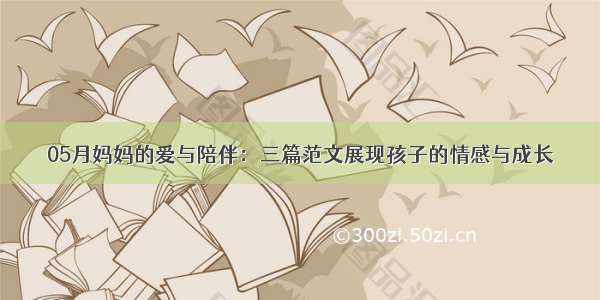
初三英语上册主要涵盖了语法、词汇、听力、口语和阅读等方面的内容。本册教材以生动有趣的故事和实用的对话为主线,旨在帮助学生提高英语综合能力。教材中的课文内容丰富多样,涵盖了日常生活、学校、家庭和社会等各个方面的话题,通过学习这些话题,学生可以拓宽视野,增加词汇量,并培养良好的语感和交流能力。下面是小编精心整理的初三英语上册重点必备知识点期末复习梳理总结归纳完整版,欢迎大家阅读!
文章目录
初三上册英语知识点总结归纳
初三英语上册语法知识点
初三英语上册重点短语
九年级上册初中英语情态动词强化练习题两套含答案
九年级英语上册期末复习综合练习
初三上册英语知识点总结归纳
[第一类] 名词类
1. 这些女老师们在干什么?
[误] What are the woman teachers doing?
[正] What are the women teachers doing?
[析] 在英语中,当一名词作定语修饰另一名词(单或复数形式)时,作定语的名词一般要用其单数形式;但当man,woman作定语修饰可数名词复数形式时,要用其复数形式men,women.
2. 房间里有多少人?
[误] How many peoples are there in the room?
[正] How many people are there in the room?
[析] people作“人、人们”解时,是个集合名词,其单复数同形。
3. 我想为我儿子买两瓶牛奶。
[误] I want to buy two bottle of milk for my son.
[正] I want to buy two bottles of milk for my son.
[析] 表示不可数名词的数量时,常用“a / an或数词 +表量的可数名词 + of + 不可数名词”这一结构, 其中当数词大于1时,表量的可数名词要用其复数形式。
[第二类] 动词类
4. 你妹妹通常什么时候去上学?
[误] What time does your sister usually goes to school?
[正] What time does your sister usually go to school?
[析] 借助助动词do(或does)构成疑问句或否定句时,句中的谓语动词用其原形。
5. 琳达晚上经常做作业,但今晚她在看电视。
[误] Linda often do her homework in the evening,but this evening she watching TV.
[正] Linda often does her homework in the evening,but this evening she is watching TV.
[析] 在初一英语学习阶段,我们接触到了两种主要时态:一般现在时和现在进行时。一般现在时表示经常的或习惯性的动作,常和often,usually,sometimes 等时间状语连用。在一般现在时的句子中,若主语是第三人称单数,谓语动词要用其第三人称单数形式。现在进行时表示现阶段正在进行或发生的动作,现在进行时由be(am / is / are) + ving形式构成。
6 这双鞋是红色的。
[误] This pair of shoes are red.
[正] This pair of shoes is red.
[析] 在shoes,trousers,gloves,glasses等表示成双成对的衣物或工具名词前用pair(表计量)修饰时,谓语动词的形式由pair的单复数形式来决定。
[第三类] 代词类
7. 这张票是她的,不是我的。
[误] This is hers ticket. It’s not my.
[正] This is her ticket. It’s not mine.
[析] 物主代词有形容词性物主代词和名词性物主代词之分。形容词性物主代词之后一定要接名词,而名词性物主代词之后不需接任何词。
8. 吴老师教我们英语。
[误] Miss Wu teaches our English. [正] Miss Wu teaches us English.
[析] teach sb. sth.中的sb.作teach的宾语,因此当sb.为人称代词时要用其宾格形式。
[第四类] 介词类
9. 你能找到这个问题的答案吗?
[误] Can you find the answer of this question?
[正] Can you find the answer to this question?
[析] 英语中用“the answer to …”表示“……的答案”。类似结构还有the key to the door,the way to the zoo等。
10. 格林先生星期六上午来这里。
[误] Mr Green will come here in Sunday evening.
[正] Mr Green will come here on Sunday evening.
[析] 表示在上午、下午等时,介词要用in;而表示在具体的某天上午、下午时,介词要用on.
11. 那个穿着红裙子的小女孩是我们老师的女儿。
[误] That little girl on a red skirt is our teacher’s daughter.
[正] That little girl in a red skirt is our teacher’s daughter.
[析] 用介词表示“穿戴衣物”时,只能用in,其他介词没有此用法。
[第五类] 副词类
12. 莉莉,你为什么不回家呢?
[误] Lily,why don’t you go to home?[正] Lily,why don’t you go home?
[析] come,go 等后接here,there,home等地点副词时,地点副词前不加to。
[第六类] 连词类
13. 我喜欢语文和英语,但我不喜欢体育和历史。
[误] I like Chinese and English,but I don’t like P.E.and history.
[正] I like Chinese and English,but I don’t like P.E.or history.
[析] 在肯定句中并列成分之间用and来连接;而在否定句中,并列成分之间的连接需用or。
[第七类] 冠词类
14. 乘飞机去北京花了史密斯一家人一个小时。
[误] It takes Smiths a hour to go to Beijing by a plane.
[正] It takes the Smiths an hour to go to Beijing by plane.
[析] 1.表示“……一家人”用结构“the + 姓氏复数”;
2.our 一词的第一个字母不发音,它是以元音音素开头的,所以“一小时”要用 an hour;
3.用介词by表示“乘坐”某种交通工具时,交通工具名词前不加任何冠词。
[第八类] 句法类
15. ――你不是学生吗? ――不,我是学生。
[误] ――Aren’t you a student? ――No, I am.
[正] ――Aren’t you a student? ――Yes, I am.
[析] 对否定疑问句的回答是用Yes还是用No,这取决于实际情况:如果事实是肯定的,就用Yes表“不”;如果事实是否定的,就用No表“是的”。
拓展阅读:英语有哪些重点语法
1.动词be(is,am,are)的用法
我(I)用am, 你(you)用are,is跟着他(he),她(she),它(it)。单数名词用is,复数名词全用are。变否定,更容易,be后not加上去。变疑问,往前提,句末问号莫丢弃。还有一条须注意,句首大写莫忘记。
2.this,that和it用法
(1)this和that是指示代词,it是人称代词。
(2)距离说话人近的人或物用this, 距离说话人远的人或物用that。如:
This is a flower. 这是一朵花。(近处)That is a tree. 那是一棵树。(远处)
(3)放在一起的两样东西,先说this, 后说that。如:
This is a pen. That is a pencil. 这是一支钢笔。那是一支铅笔。
(4)向别人介绍某人时说This is…, 不说That is…。如:
This is Helen. Helen, this is Tom. 这是海伦,海伦,这是汤姆。
(5)This is 不能缩写, 而That is可以缩写。如:
This is a bike. That’s a car. 这是一辆自行车。那是一辆轿车。
(6)打电话时,介绍自己用this, 询问对方用that。如:
—Hello! Is that Miss Green? 喂,是格林小姐吗?
—Yes, this is. Who’s that? 是的,我是,你是谁?
注意:虽然汉语中使用“我”和“你”,但英语中打电话时绝不可以说:I am…, Are you…?/Who are you?
(7)在回答this或that作主语的疑问句时, 要用it代替this或that。如:
①—Is this a notebook? 这是笔记本吗?—Yes, it is. 是的,它是。
②—What’s that? 那是什么?—It’s a kite. 是只风筝。
3.these和those用法
this, that, these和those是指示代词,these是this的复数形式,指时间,距离较近的或下面要提到的人或事;those是that的复数形式,指时间、距离较远或前面已经提到过的人或事物。
①This is my bed. That is Lily’s bed. 这是我的床。那是莉莉的床。
②These pictures are good. 那些画很好。
③ Are those apple trees? 那些是苹果树吗?
在回答主语是these或those的疑问句时,通常用they代替these或those以避免重复。如:
④Are these/those your apples? 这些(那些)是你的苹果吗?
Yes, they are. 是的,他们是。
4.名词+’s所有格
单数名词后直接加 “ ’s ”:
Jim’s coat 吉姆的外套 Jeff’s mother杰夫的妈妈
以s结尾的复数名词,只加“’”
Teachers’ Day教师节 the twins’ books双胞胎的书
不以s结尾的不规则的名词复数,加“ ’s ”
Children’s Day 儿童节 men’s shoes男式鞋
表示两者共同拥有时,只在最后一个名词后加’s
Lucy and Lily’s mother 露茜和莉莉的妈妈(共同的妈妈,一个妈妈)
表示两者各自拥有时,要在每个名词后加’s
Lucy’s and Kate’s rooms 露茜和凯特的房间(各自的房间,两间房子)
5.There be句型
(1)There be句型主要用以表达“某处(某时)有某人(某物)。”其基本结构为“There be+某物(某人)+某地(某时)”其中there是引导词,没有词义;主语是be后面的名词, be是谓语动词,在一般现在时中be只用is和are两种形式。下面这首歌诀可帮你巧记there be句型结构:
There be放句首,主语跟在后。地、时放句末,强调置前头。There is a book on the desk.
有时为了强调地点,也可把介词短语放在句首。如:On the desk there is a book.
(2)There be句型中的be动词如何确定呢?请先看看下面这首歌诀:
Be动词,有三个,am,is还有are。“There be”真特别,不留am只留俩,那就是is还有are。要用is还是are,须看其后的名词是单数还是复数。若是单数或不可数名词用is,否则就用are。如:
①There is a tree behind the house.
②There is some water(水)in the bottle(瓶子).
③There are some pears in the box.
(3)注意:如果“be”后的主语是由and连接的两个或两个以上的名词,那么be的形式要遵循“远亲不如近邻”的原则。也就是说,“be”的形式是由与它最近的那个名词来确定的。若那个名词是单数或不可数名词要用is,是复数就用are。如:
①There is a book and some pens on the floor.
②There are some pens and a book on the floor.
6.like一词的用法
like用作及物动词,译为“喜欢”。
(1)后接名词或代词,表示喜欢某人或某物。如:
I like the baby very much. 我非常喜欢这个小孩。
(2)后接动名词(v. -ing),表示“喜欢做某事”,着重于习惯、爱好。如:
Tom likes playing football. 汤姆喜欢踢足球。
(3)后接动词不定式(to do ),表示“偶尔地喜欢做某事”,着重于某次具体的行为。如:
I like reading, but I like to watch TV this evening. 我喜欢读书,但我今晚想看电视。
7.句子单数变复数,注意以下五要素
(1)主格人称代词要变成相应的复数主格人称代词,即I→we, you→you,she,he,it→ they。
如:She is a girl. →They are girls.
(2)am,is要变为are。如:I’m a student. →We are students.
(3)不定冠词a,an要去掉。如:He is a boy. →They are boys.
(4)普通单数名词要变为复数形式。如:It is an apple. →They are apples.
(5)指示代词this,that要变为these,those。如:This is a box. →These are boxes.
8.英语日期的表示法
英语中月份和星期名称都是专有名词,它们的首字母必须大写,并且前面无需用冠词。
用英语表示日期,其顺序为月+日+年,日和年之间需用逗号隔开。如:August 2nd,(8月2日)。也可以用日+月+年来表示。如:10th May,(5月10日)英语日期前介词的使用:若指在哪一年或哪一月,则用介词in,若具体到某一天,则需用介词on。
9.时间的表达法
(1) 直读式,即直接读出时间数字
7: 05 seven five 8:16 eight sixteen
(2) 过、差式,即几点差几分,几点过几分。(以30分为分界线)
1:25 twenty-five past one 2:30 half past two
3:43 seventeen to four 4:38 twenty-two to five
(3)12小时制
6:00 a.m. 上午6点 8:20 p.m. 下午8点20分
(4)24小时制
13:00 13点钟 22:15 22点15分
(5)15分可用quarter
4:15 a quarter past four 5:45 a quarter to six
(6)时间前通常用at.
at 5 o’clock at 7:30 p.m.
10. want用法
(1)想干什么用want to do sth
They want to join the sports club. 他们想加入运动俱乐部。
(2)第三人称单数作主语,want要作变化
①He wants to play basketball.
②Li Xia wants to play the piano.
(3)变疑问句,否定句要借助助动词do或does.
①-Do you want to play soccer ball ? -Yes , I do . / No , I don’t.
②-Does he want to go home by bus ? -Yes , he does . / No , he doesn’t.
初三英语上册语法知识点
初三上册知识点:疑问词+不定式动词结构
英语有个很有用的结构,就是:疑问词+不定式动词(question word + to-infinitive)。
疑问词是疑问代词“who, whom, what, which, whose”和疑问副词“when, where, how, why ”。此外,连接词“whether”也适用。
“疑问词+不定式动词”结构有何功用呢?其主要功用有下列五种:
⑴当主语,如:
● When to hold the meeting has not yet been decided.
● Where to live is a problem.
● How to cope with the rising cost of living becomes a daily discussion topic.
⑵当宾语,如:
● We must know what to say at a meeting.
● He could not tell whom to trust.
● Do you know how to play bridge?
⑶当补足语,如:
● The problem is where to find the financial aid.
● The question is who to elect.
⑷当名词同位语,如:
● Tom had no idea which book to read first.
● Do you have a rough impression how to do it?
⑸当宾语补足语,如:
● Jim is not sure whose to choose.
● Mary and John are not certain whether to get married or not.
适用于“疑问词+不定式动词”的动词包括:“know, see, decide, tell, ask, consider, discover, explain, forget, guess, hear, imagine, inquire, learn, remember, think, wonder, understand”等。
有点值得特别注意的是:当这结构当宾语时,它的作用等于名词分句,例如:
● I could not decide which dictonary to buy. / I could not decide which dictionary I should buy.
● Jack did not know where to find such a good teacher./ Jack did not know where he could find such a good teacher.
有些动词,如“ask, show, tell, advise, inform, teach”等,可以先有个宾语,然后才接着加上适当的“疑问词+不定式动词” 结构。例如:
● The chief technician showed the apprentice how to repair the machine.
● Have you told him where to get the application form?
综上所述,可见“疑问词+不定式动词”结构是个形象清新,既容易用又不容易出错的特别结构,可以多多运用。
初三英语上册知识点:垂悬结构
所谓垂悬结构(The Dangling Construction)就是一个句子成分,如分词短语,不定式动词短语等,找不到被修饰的主语或被修饰的对象不合逻辑。垂悬结构是种错误的句法,应该避免。
下面是三种常见的垂悬结构及其改正方法:
⒈垂悬分词或分词短语,如:
① Climbing up the hill, several boars were seen.
这句子里的现在分词短语(present participial phrase)修饰主语“several boars”是错的;改正方法有二:
(a)确定是逻辑主语,使句子变成“Climbing up the hill, the explorers saw several boars.”
(b)把现在分词短语扩大为副词分句(也称状语从句):“When the explorers climbed up the hill, they saw several boars/ several boars were seen.”
⒉垂悬副词短语,如:
② After putting a shrimp on the hook, the fish began to bite.
这句的副词短语(adverb phrase)和主语“the fish”有逻辑关系呢?真正的逻辑主语应该是“the fisherman”或“the angler”才对。改正方法和例①同:
(a) After putting a shrimp on the hook, the fisherman found that the fish began to bite.
(b) After the fisherman had put a shrimp on the hook, the fish began to bite.
⒊垂悬不定式动词短语,如:
③ To write well, a lot of practice is needed.
④ To be a loyal employee, a sense of belonging is a must.
这两个句子的不定式动词短语(infinitive phrases)并不能修饰“practice”和“a sense of belonging”,真正的主语必须是“ 人”,如:
(a) To write well, one needs a lot of practice/a person has to practise a lot.
(b) To be a loyal employee, he or she must have a sense of belonging.
上述三类垂悬结构中,第一类发生的频率最高,必须注意。但是在下列三种情况下,分词短语是对的,它们并非垂悬结构:
第一,独立结构(The Absolute Construction,见3月7日《中英合谈》)中的分词短语有自己的主语,所以不是垂悬结构。例如:
① Such being the case, we can go home now./……it is not wrong to call it a day.
第二,当分词含有介词或连词性质时,它不需要逻辑主语,所以没有垂悬问题存在。例如:
② Owing to a lack of funds, the project has to be discontinued.
③ Provided that there is sufficient time, everyone can do the job better.
第三,当分词短语是用来表示说话者的态度或意见时,也不需要逻辑主语,因此也不存在着垂悬问题。例如:
④ Judging from his facial look, the news must have been terrible.
⑤ Taken as a whole, there is nothing wrong with the logic behind that idea.
初三英语上册知识点:形容词后缀不可乱加
下面这则广告中的形容词“irresistable”里的后缀( suffix)不对,应该把“-able”改为“-ible”:
“We offer: competitive monthly salary, weekly incentives, attractive transport allowance, incentive trips and irresistable performance bonus.”
到底是“-able”,还是“-ible”?这两者有何不同?
现在先从形容词的后缀谈起。
形容词后缀分两大类。一类是加到名词上的;另一类是加到动词上的。
㈠加到名词上的主要有:① -y,如:bloody, dirty, healthy, juicy, muddy; ② -ly,如:costly, friendly, lovely, orderly, timely;③ -ful,如:careful, faithful, helpful, peaceful, useful;④ -less,如:careless, harmless, noiseless, senseless, useless;⑤ -ous/-ious,如:dangerous; courageous, envious, mysterious;⑥ -al/-tal/-ial/-tial,如:accidental, horizontal, colonial, influential;⑦ -ic/-etic/-atic,如:artistic, sympathetic, systematic;⑧ -ish,如:childish, foolish, selfish;⑨ -like,如: life-like, business-like, war-like;⑩ -ed/-en,如:skilled, horned, golden, wooden.
㈡加到动词上的有:① -ent/-ant,如:dependent, different, observant, pleasant;② -able/-ible,如: agreeable, comfortable, defensible, sensible;③ -ive/-tive/-ative/-itive,如:active, attentive, imaginative, sensitive;④ -ed/-en,如:advanced, noted, stolen, swollen;⑤ -ing,如:annoying, disgusting, entertaining.
-able/ible 出现在第二类后缀中,“-able”后缀的形容词属英语体系的字:“-ible”后缀的形容词则来自拉丁体系。前者数量大,后者数量少,主要的是下面这些,可以特别留意:
accessible, apprehensible, audible, compatible, contemptible, convertible, corrigible, destructible, digestible, divisible, defensible, edible, eligible, exhaustible, fallible, feasible, flexible, forcible, horrible, illegible, intelligible, negligible, perceptible, possible, responsible, resistible, sensible, suspectible, tangible, terrible, visible.
现在顺便把名词、动词和副词主要后缀提出,作为参考:
⑴名词后缀
-ment, -t, -ture, -ion/-ition, -al, -ance, -ent, -er, -ant 等。这些名词后缀都要加到适当的动词上,如:arrangement, restraint, fixture, celebration, extension, competition, renewal, assistance, resident, exporter, attendant.
-ness, -y/-ty/-ity, -th, -ce/-cy 等,可以加到适当的形容词上如:darkness, kindness, honesty, loyalty, simplicity, truth, warmth, importance, absence, ungency, efficiency.
⑵动词后缀:
加到名词上的有 -en, -ise/-ize, -fy, -ate,如:frighten, apologise, beautify, motivate.
加到形容词上的有 -ise/-ize, -en,如:modernise, realise, brighten, weaken.
⑶副词后缀:
-ly,可以加到形容词和某些名词上,如:beautifully, clearly, leisurely, weekly.
每个后缀都有一定的意思,但不能脱离词根独立生存,这点要特别注意,以免犯错。
初三英语上册知识点:代名词不出错
名词的误用,特别是代名词的数和所指引的主语的数不符,使得后头谓语动词的.数也跟着出差错,真是差之毫厘,失之千里,不可不察。
这里要指出一些方向,以避免因代名词的错误而使句子的意思模糊不清。
避免代名词的错误呢?
㈠不要用同个代名词指引两个性别一样的名词,如:
① Mr Li told Mr Lin that he was wrong.
这里的 he 既可指林先生,也可指李先生,含糊不清。应该改为 ②或③:
② Mr Li said to Mr Lin, “I am wrong.”
③ Mr Li said to Mr Lin, “You are wrong.”
㈡避免把代名词和它所指引的名词隔开太远,如:
④ The man leaned over the bench for hours working on the plan. It was too low to be comfortable.
这里的代词 it 离开名词 the bench 太远,结果关系不清楚,因为在位置上,它更适合指引 the plan.在这种情况下,只好避开 it,而用名词,即 the bench.
㈢避免滥用指示代词“this, that”或关系代词“who, which, that”泛指上文的内容。例如:
⑤ Tom’s brother is an accountant, and this is the profession everyone envies.”
这里的 this 指“accountant”。“会计师”是一种人士,和后头的“专业”(profession)并不相称,因此要把 this 改为 accountancy(会计工作),才合句子的意思。
⑥ The profit from the business was large, which I realised sometime later.
这里的“which I realised sometime later”是句形容词分句,应该出现在先行词后面,不应该脱离出来而独立。如果要用它来修饰全句话,更不合逻辑,应该改为⑦或⑧:
⑦ I realised sometime later that the profit from the business was large.(主句 + 名词分句)
⑧ The profit from the business was large. I realised this (matter) sometime later.(单句 + 单句)
㈣避免用代名词“they, you, it”影射脑子里的事物,如:
⑨ In Singapore, it relies heavily on tourism as a source of national revenue.
这里的 it 指向什么呢?如果是心目中的“政府”或“促进局”,那就要明言,不要用不清不楚的 it:
⑩ In Singapore, the government……
In Singapore, the Tourist Promotion Board……
In less industrialised countries, they do not know the problems of urban development.
这里的代名词 they 是不是指 the people(人民)?如果是就用吧。In less industrialised countries, the people……过后,要再提这主语时,才用 they:……the people……They are only interested in their daily life.
其实,在这种主语不详的情况下,被动语态是最好的选择:
In less industrialised countries, the problems of urban development are not known.
初三英语下册知识点:被动语态的动词
主动语态比被动语态直接而有力,多用主动语态,可以使文章充满朝气,呈现活力。在下列两组句子中, (b)比(a)有力:
(1) a.My first visit to New Zealand will always be remembered by me.
b. I will always remember my first visit to New Zealand.
(2) a.The crowing of cocks could be heard at dawn.
b. The cocks’ crow came with dawn.
虽然如此,在某些情况下,非用被动语态不可。前此已提过这事,这里不再重述。这里只有指出其中一点,就是有些动词,如 “base, schedule, expect, suppose” 等,通常以被动语态形式出现。
例如:
(1)This survey was based on facts.
(2)The last train is scheduled to leave at 9pm.
(3)You are expected to come on time.
(4)All are supposed to work hard.
除了上述这些动词之外,还有十种,几乎都以被动式出现。
(一)有关“疾病”的动词,如:
(1)Helen’s left lung is infected.
(2)He is confined to the house by illness.
(3)The old man was seized with sudden chest pains.
(二)有关“疲乏”的动词,如:
(4) I am completely exhausted after the game.
(5)Tom was done up after the race.
(三)有关“喜乐”的动词,如:
(6)The children were fascinated by the toys.
(7)We were delighted to hear the good news.
(8) I am very pleased to see you here.
(四)有关“延迟”或“障碍”的动词,如:
(9)The workers were held up by the heavy rain.
(10)The road was blocked by ice.
(11)The train was delayed by 30 minutes.
(五)有关“惯性动作”的动词,如:
(12)Tom is addicted to smoking.
(13)Foreign workers are quite used to hard work.
(六)有关“烦恼”或“焦急”的动词,如:
(14)Who was upset by John?
(15)Mother was annoyed to know this.
(七)有关“惊奇”或“震惊”的动词,如:
(16) I was surprised to see him here.
(17)All were shocked to hear the bad news.
(八)有关“包围”的动词,如:
(18)The troops were surrounded.
(19)Troy was besieged.
(九)有关“沾污”或“污化”的动词,如:
(20)Judy’s reputation is tarnished.
(21)The water was contaminated with oil.
(十)有关“害怕”或“混乱”的动词,如:
(22)All were frightened out of their wits.
(23)He was puzzled about what to do next.
要注意的一点是,上面这十类动词有些已渐渐失去了动词力量,转化为惯用语。
初三英语上册重点短语
1. at the moment
2. used to
3. for a while
4. walk away with sth.
5. leave for some place
6. sooner or later
7. pay for
8. come up with an idea
9. think of
10. have a try
11. all over the world
12. be famous for
13. large numbers of
14. all the year round
15. no matter what
16. give up
17. for example
18. by the way
19. on business
20. so far
21. come true
22. set off
23. slow down
24. go on doing
25. wait for
26. be proud of
27. be afraid of
28. speak highly of
29. a year and a half
30. half a year
31. pick up
32. as soon as
33. keep… clean
34. take care of
35. cut down
36. make a contribution to
37. base on
38. make sure
39. take away
40. begin with
41. right now
42. as soon as possible
43. leave a message
44. all kinds of things
45. walk around
46. fall asleep
47. wake up
48. go on a trip
49. have a good time
50. take photos
51. come out
52. come on
53. have a family meeting
54. talk about
55. go for a holiday
56 go scuba diving
57. write down
58. by oneself
59. walk along
60. get a chance to do sth
61. have a wonderful time
62. book a room
63. have an accident
64. be interested in
65. use sth. to do sth.
66. make a TV show
67. be amazed at
68. take part in
69. feed on
70. get out of
九年级上册初中英语情态动词强化练习题两套含答案
一、选择题
1.— Could you please clean your room?— . I’ll do it at once.
A.Yes, sure B.Sorry, I can’t C.It doesn’t matter D.Here you are
2.—Are you going to offer some masks and alcohol wet wipes (酒精湿巾) to the people in the village?
— They are in great need of these things.
A.What a shame! B.Why not? C.Why me? D.What’s wrong?
3.— I find it difficult to fall asleep before exams. Could you help me?
— . We have helped many students with similar problems.
A.No problem B.Come on C.Well done D.What a pity
4.—I was too busy to see the singing competition.
— . I have to say it’s really wonderful.
A.No problem B.You are welcome C.Not at all D.It’s a pity
5.— I thought I’d try to repair the car myself.
— ! You know nothing about the car.
A.No way B.You can’t be serious C.I couldn’t agree more D.Don’t change a thing
6.— I am so sorry to keep you waiting for such a long time.
— .
A.Please shut up B.It’s your mistake C.It doesn’t matter D.Don’t explain it
7.—I’m afraid I can’t do well in the sports meeting. I might let my classmates down.
— . You don’t need to push yourself too hard.
A.It’s a pleasure B.What a pity C.Take it easy D.You’re welcome
8.—It’s a shame to ask you to lend me more money, but. . .
— . You really need money to keep on with your education.
A.Don’t be silly B.Forget it C.No way D.Don’t mention it
9.—Amazingly, I’ve managed to finish the project by myself.
— I told you it was easy
A.With pleasure. B.Guess what? C.There you are! D.It doesn’t matter
10.–Would you like to go shopping with me on Saturday?
— . I have to help my mother with housework.
A.I’m afraid not B.Take your time
C.Enjoy yourself D.That’s all right
11.—I’m sorry. That wasn’t of much help.
— . In fact, it was most helpful.
A.Thanks anyway B.It doesn’t matter C.Of course not D.Sure it was
12.—I plan to find a part-time job in the coming summer holiday.
— It will be a totally different experience.
A.See you later. B.You’d better not.
C.I’m sorry to know that. D.That sounds like fun.
13.-Do you think the rain will stop tomorrow?
- . It has rained for four days. It’s too wet everywhere.
A.I hope not B.I don’t think so
C.Don’t worry D.I hope so
14.—Liz, I’d like to take a week’s holiday.
— . We’re as busy as a bee.
A.Go ahead B.With pleasure C.Forget it D.That’s right
15.— What do you think of the movieMr. Bea ?
— . It’s very funny.
A.I can’t stand it . B.I don’t mind it C.I love it. D.I hate it.
16.—Would you like a small or a large bowl of noodles? — . I’m very hungry.
A.A small bowl B.A large bowl C.Yes, please D.No, thanks
17.-Do you mind telling me how to use this function? – . It’s easy. Just double-click on the “Pencil” icon.
A.No, not at all B.Of course, I do
C.Yes, I do D.Yes, I don’t
18.—Would you please help me with my spoken English?
— . First you should know practice makes perfect.
A.That’s right B.No problem C.Quite well D.No, thanks
19.—Lucy, can you help me with my history?
— . I am good at it.
A.With pleasure B.I’m afraid not C.Sorry, I can’t D.No way
20.—I have got a new job as a presenter in the Wenzhou Radio Station!
— .
A.Come on B.Good idea C.Congratulations D.All right
21.—I missed the basketball game last Saturday because I had an exam.
— , but it will be repeated on TV.
A.Take it easy B.You are lucky C.That’s wonderful D.Never mind
22.—Do you like cartoons or scary movies?
— . They can cheer me up.
A.Yes, I do B.No, I don’t C.Cartoons D.Scary movies
23.—I’m going hiking this afternoon. Would you like to go with me?
— , but I must finish my homework first.
A.Sorry, I don’t B.That’s right C.I’d love to D.Not at all
24.—Anna, can you come to my party tomorrow night?
— , but I have to stay at home because of the flu.
A.I’d love to B.Sounds good C.That’s OK D.Why not
25.—It’s been a wonderful party. Thank you very much?
—- .
A.With pleasure B.No , thanks C.It’s OK D.I’m glad you enjoyed it .
26.—I’ll be away on a business trip. Would you mind looking after my cat?
—Not at all. .
A.It’s my pleasure B.I’d rather not. C.I’d like it. D.With pleasure.
27.—How would you like your soup?
— .
A.Very delicious B.With some tomatoes and eggs, please
C.I like it very much D.No, thanks
28.—Time is up. I have to go now.
— ! We don’t have more time to talk.
A.That’s cool B.That’s the answer C.That’s a pity D.That’s good news
29.— Don’t keep the water running when you brush your teeth.
— .
A.I hope so B.I’m afraid not C.Sorry, I won’t D.It’s nothing
30.—How do you find the documentary DAVID Profile(国宝档案).
— . I can’t think too highly of it.
A.It all depends B.It’s really wonderful
C.No one knows for certain D.It is not my cup of tea
31.—Only those who have a lot in common can get along well.
— . Opposites sometimes attract.
A.I think so B.I don’t think so C.I don’t care D.I hope so
32.— Why will you take part in the charity walk? You are not good at running at all.
— . I run to show that I can help others.
A.Not exactly B.That’s not the point C.I can’t agree more D.It sounds like a pity
33.—Shall we go to the amusement park right away or the day after tomorrow?
— . Any time will do.
A.Excuse me B.Have a good time
C.It’s up to you D.I’m afraid I can’t
34.—How do you like coffee, Minnie?
—It tastes very terrible. .
A.I have no idea B.I don’t mind it C.I really can’t stand it D.I can’t afford it
35.— Mr. Smith, I won the first prize in the competition.
— I think you’ll do better and better.
A.Congratulations! B.Good idea! C.That’s all right! D.What a shame!
36.—I love the Internet. I’ve come to know many friends on the net.
— . Few of them would become your real friends.
A.I can’t agree more B.I’m pleased to know that
C.That’s for sure D.That’s not the case
37.—Oh, no! There isn’t any salt left.
— ! I’ll buy some when I go into town.
A.Good idea B.Go ahead C.Never mind D.Not at all
38.— !
—Yes. It sounds gentle and relaxing.
A.How good the vegetable soup is B.How exciting the storybook is
C.What nice music Ann is playing D.What a beautiful flower Jim keeps
39.— All of Mark Twain’s novels are popular.
— . Especially The Adventures of Tom Sawyer.
A.I can’t agree more B.That’s not the case C.That’s not the point D.Don’t mention it
40.— Wow, what a good smell! Can I have a piece of cake?
—
A.No way. B.Good idea! C.HeIp yourself. D.What a pity!
41.—I’ll have a chemistry exam tomorrow.
— !
A.Well done B.Congratulations C.You’re welcome D.Good luck
42.—Thank you for helping to build hospitals during this special period.
— ! Many hands make light work.
A.My pleasure B.All right C.Never mind D.None of my business
43.—I prefer to chat online. I’ve got to know many friends on the Internet.
— . Few of them would become your real friends.
A.I can’t agree more B.I’m pleased to know that
C.That’s for sure D.That’s not the case
44.—I visited the Purple Mountain Observatory by myself last Saturday.
— Why didn’t you tell me earlier?
A.You did? B.I hope not. C.Have a good time. D.I can’t believe it.
45.—We’llstudyindifferentschoolsnextterm. Ihopeyou’llenjoyyourtimeinthenewschool!
—
A.I’lltakeyouradvice. B.Thesametoyou. C.Congratulations! D.Itdoesn’tmatter.
46.— The dress I got is not the same color as that is shown online.
— ? But if so, I promise we will send you another one.
A.How come B.Who knows C.What for D.Why worry
47.—Another Friday! Let’s go to see the play tonight.
— I will book the tickets online.
A.My pleasure. B.That’s right. C.Why not? D.Never mind.
48.—Can I look at the menu for a few more minutes before I decide?
—Of course. , Sir.
A.Make yourself at home B.Enjoy yourself C.It doesn’t matter D.Take your time
49.— I’m so sorry to keep you waiting for me so long.
— !
A.With pleasure. B.Don’t say so C.I don’t think so D.It doesn’t matter
50.—Hi, everybody! Here is the music.
— . Let’s dance to the music.
A.That’s no good B.Here we go C.That’s a shame D.Have a good time
【参考答案】***试卷处理标记,请不要删除
一、选择题
1.A
【解析】
本题考查的是情景反应,要用客气婉转的回答方式。故选A
解析:A
【解析】
本题考查的是情景反应,要用客气婉转的回答方式。故选A
2.B
【详解】
句意:——你准备给村里的人提供口罩和酒精湿巾吗? ——为什么不呢?他们非常需要这些东西。
考查情景交际。What a shame! 真可惜!Why not? 为什么不呢?Why m
解析:B
【详解】
句意:——你准备给村里的人提供口罩和酒精湿巾吗? ——为什么不呢?他们非常需要这些东西。
考查情景交际。What a shame! 真可惜!Why not? 为什么不呢?Why me? 为什么是我;What’s wrong? 怎么了?根据“They are in great need of these things.”他们非常需要这些东西。可知,应该选择Why not? 表示愿意给村里的人提供口罩和酒精湿巾。故选B。
3.A
【详解】
句意:——我发现考试前很难入睡。你能帮我吗? ——没问题。我们帮助过许多有类似问题的学生。
考查情景交际。No problem没问题;Come on(表示鼓励)来吧;Well do
解析:A
【详解】
句意:——我发现考试前很难入睡。你能帮我吗? ——没问题。我们帮助过许多有类似问题的学生。
考查情景交际。No problem没问题;Come on(表示鼓励)来吧;Well done干得好;What a pity真遗憾。根据语境可知,对他人提出的帮忙请求,应回答答应或拒绝,A选项符合语境,故选A。
4.D
【详解】
句意:——我太忙了,没有时间去看歌唱比赛。——真遗憾。我不得不说它真是太棒了。
考查情景交际。No problem没问题;You are welcome不客气;Not at all别客
解析:D
【详解】
句意:——我太忙了,没有时间去看歌唱比赛。——真遗憾。我不得不说它真是太棒了。
考查情景交际。No problem没问题;You are welcome不客气;Not at all别客气;It’s a pity真遗憾。根据“I have to say it’s really wonderful.”可知比赛很精彩,要为对方没时间去而感到遗憾。故选D。
5.B
【详解】
句意:——我想我应该试着自己修理汽车。——你一定是在开玩笑。你对那辆车一无所知。
考查情景交际。No way决不;You can’t be serious你一定是在开玩笑;I coul
解析:B
【详解】
句意:——我想我应该试着自己修理汽车。——你一定是在开玩笑。你对那辆车一无所知。
考查情景交际。No way决不;You can’t be serious你一定是在开玩笑;I couldn’t agree more我完全同意;Don’t change a thing什么都不要改变。根据“You know nothing about the car”可知,对方对车一无所知,所以认为对方说自己修理汽车这句话一定是在开玩笑,故选B。
6.C
【详解】
句意:—— 很抱歉让你久等了。—— 没关系。
考查情景交际。Please shut up请闭嘴;It’s your mistake是你的错误;It doesn’t matter没关系;
解析:C
【详解】
句意:—— 很抱歉让你久等了。—— 没关系。
考查情景交际。Please shut up请闭嘴;It’s your mistake是你的错误;It doesn’t matter没关系;Don’t explain it不要解释。根据“I am so sorry…”中的sorry一词可知,下一句应该是回应别人的道歉,C选项“It doesn’t matter没关系”符合语境。故选C。
7.C
【详解】
句意:——恐怕我在运动会上做不好。我可能会让我的同学失望。 ——别紧张。你不需要有太多的压力。A. It’s a pleasure很荣幸;B. What a pity真可惜;C. T
解析:C
【详解】
句意:——恐怕我在运动会上做不好。我可能会让我的同学失望。 ——别紧张。你不需要有太多的压力。A. It’s a pleasure很荣幸;B. What a pity真可惜;C. Take it easy放轻松;D. You’re welcome不客气。根据答语You don’t need to push yourself too hard. 你不需要有太多的压力。可知,应该是别紧张。故选C。
8.A
【详解】
句意:——向你借更多的钱真是一件可耻的事情。——不要傻了,你确实需要钱来继续学业啊。
考查情景交际。Don’t be silly别傻了,是生活口语;Forget it忘记它,常用于回答
解析:A
【详解】
句意:——向你借更多的钱真是一件可耻的事情。——不要傻了,你确实需要钱来继续学业啊。
考查情景交际。Don’t be silly别傻了,是生活口语;Forget it忘记它,常用于回答道歉;No way没门儿;Don’t mention it没关系;根据句意理解可知,这里表达的是对上句对方所说内容的一种口语化的安慰,与后句内容一起,更好的表达对对方的说服,故选A。
9.C
【详解】
句意:——令人惊奇的是,我自己设法完成了这个项目。——我说对了吧,我告诉你它很容易。A. With pleasure. 乐意效劳;B. Guess what? 猜猜看;C. There
解析:C
【详解】
句意:——令人惊奇的是,我自己设法完成了这个项目。——我说对了吧,我告诉你它很容易。A. With pleasure. 乐意效劳;B. Guess what? 猜猜看;C. There you are! 我早就这样说过;D. It doesn’t matter没关系。根据句意及上下文可知,表示说话者的猜测或判断是对的,常带有得意的意味。故选C。
10.A
【解析】
句意:——星期六你愿意和我一起去购物吗?——恐怕不行,我要帮我妈妈做家务。A. I’m afraid not恐怕不可以;B. Take your time不要紧,慢慢来;C. Enjo
解析:A
【解析】
句意:——星期六你愿意和我一起去购物吗?——恐怕不行,我要帮我妈妈做家务。A. I’m afraid not恐怕不可以;B. Take your time不要紧,慢慢来;C. Enjoy yourself玩的开心;D. That’s all right没关系。根据“I have to help my mother with housework.”可知,不能一起前往购物,故答案为A。
11.D
【详解】
句意:抱歉,没有帮上多大忙。根据下文,实际上,这是最大的帮助。考查情景交际。
Thanks anyway 无论如何还要谢谢你;It doesn’t matter没关系;Of cour
解析:D
【详解】
句意:抱歉,没有帮上多大忙。根据下文,实际上,这是最大的帮助。考查情景交际。
Thanks anyway 无论如何还要谢谢你;It doesn’t matter没关系;Of course not 当然不了;Sure it was当然是。结合语境。故选D。
12.D
【详解】
句意:——我计划在即将到来的暑假里找份兼职工作。 ——听起来很有趣。这将是完全不同的经历。
考查情景交际。See you later. 再见。You’d better not.
解析:D
【详解】
句意:——我计划在即将到来的暑假里找份兼职工作。 ——听起来很有趣。这将是完全不同的经历。
考查情景交际。See you later. 再见。You’d better not. 你最好不要。I’m sorry to know that. 知道这个消息我很难过。That sounds like fun. 听起来很有趣。根据“It will be a totally different experience.”可知,此处应该是听起来很有趣。故选D。
13.D
【解析】
试题分析:I hope not我希望不是,I don’t think so我不认为这样,Don’t worry不要担心,I hope so我希望如此。句意:–你认为这场雨明天会停止吗
解析:D
【解析】
试题分析:I hope not我希望不是,I don’t think so我不认为这样,Don’t worry不要担心,I hope so我希望如此。句意:–你认为这场雨明天会停止吗?—-我希望如此。这场雨已经下了四天了。到处都是湿的。根据句意,选D。
考点:考查交际用语。
14.C
【详解】
句意:——利兹,我想要度假一周。——算了吧。我们像蜜蜂一样忙碌。
考查情景交际。Go ahead继续吧;ith pleasure乐意效劳;Forget it算了吧;That’s rig
解析:C
【详解】
句意:——利兹,我想要度假一周。——算了吧。我们像蜜蜂一样忙碌。
考查情景交际。Go ahead继续吧;ith pleasure乐意效劳;Forget it算了吧;That’s right那是正确的。根据” We’re as busy as a bee”可知表示很忙所以想去度假的愿望不可能实现,用“Forget it”。故选C。
15.C
【解析】
本题考查日常用语。本题的含义为你觉得憨豆先生这部电影如何?我非常喜欢,非常有趣。根据后文内容It’s very funny,所以前句应该是我喜欢才对。故本题选C。
解析:C
【解析】
本题考查日常用语。本题的含义为你觉得憨豆先生这部电影如何?我非常喜欢,非常有趣。根据后文内容It’s very funny,所以前句应该是我喜欢才对。故本题选C。
16.B
【解析】
情景交际. A small bowl一小碗;A large bowl一大碗;Yes, please 是的,请吧; No, thanks 不,谢谢.
句意:你想要一大碗还是一小碗面条?根
解析:B
【解析】
情景交际. A small bowl一小碗;A large bowl一大碗;Yes, please 是的,请吧; No, thanks 不,谢谢.
句意:你想要一大碗还是一小碗面条?根据后文I’m very hungry,可知答案为B
17.A
【解析】
本题考查的是情景反应.根据意思可知答案为A
解析:A
【解析】
本题考查的是情景反应.根据意思可知答案为A
18.B
【详解】
句意:——你可以帮我学习英语口语吗?——没问题。首先你应该知道熟能生巧。
考查情景交际。That’s right那是对的;No problem没问题;Quite well相当好;No,
解析:B
【详解】
句意:——你可以帮我学习英语口语吗?——没问题。首先你应该知道熟能生巧。
考查情景交际。That’s right那是对的;No problem没问题;Quite well相当好;No, thanks不,谢谢。分析句子可知,前句在请求帮助,根据后句“First you should know practice makes perfect.”可知,此处给出了答案,所以同意给予帮助。故选B。
19.A
【详解】
句意:——露西,你能帮我学历史吗?——我很乐意。我很擅长。
考查交际用语。With pleasure我很乐意;I’m afraid not恐怕不能;Sorry, I can’t对不起,
解析:A
【详解】
句意:——露西,你能帮我学历史吗?——我很乐意。我很擅长。
考查交际用语。With pleasure我很乐意;I’m afraid not恐怕不能;Sorry, I can’t对不起,我不能;No way不行。根据“Lucy, can you help me with my history?”可知,此处是回答很乐意。故选A。
20.C
【详解】
句意:——我找到了一份新工作,在温州广播电台做主持人! ——恭喜你。
考查情景交际。Come on加油;Good idea好主意;Congratulations恭喜,祝贺;A
解析:C
【详解】
句意:——我找到了一份新工作,在温州广播电台做主持人! ——恭喜你。
考查情景交际。Come on加油;Good idea好主意;Congratulations恭喜,祝贺;All right好的。根据“I have got a new job as a presenter in the Wenzhou Radio Station!”可知,此处应该说“恭喜你。”故选C。
21.D
【详解】
句意:——因为考试,我错过了上周六的篮球赛。 ——没关系,但电视上会重播的。
考查情景交际。Take it easy别紧张;You are lucky你真幸运;That’s wond
解析:D
【详解】
句意:——因为考试,我错过了上周六的篮球赛。 ——没关系,但电视上会重播的。
考查情景交际。Take it easy别紧张;You are lucky你真幸运;That’s wonderful太好了;Never mind不要紧。根据“but it will be repeated on TV.”可知,此处应该是安慰,因此用Never mind回答。故选D。
22.D
【详解】
句意:——你喜欢动画片还是恐怖片?——恐怖片。它们能使我振奋。
考查情景交际和选择疑问句。根据“Do you like cartoons or scary movies?”可知此处是选
解析:D
【详解】
句意:——你喜欢动画片还是恐怖片?——恐怖片。它们能使我振奋。
考查情景交际和选择疑问句。根据“Do you like cartoons or scary movies?”可知此处是选择疑问句,不用Yes或No回答,排除AB;再由答句中“They can cheer me up.”可知喜欢的是能使人振奋的恐怖片,用“Scary movies”符合语境。故选D。
23.C
【解析】
句意:-今天下午我要去徒步旅行。你愿意和我一起去吗?-我很想去,但我必须先完成作业。A. Sorry, I don’t对不起,不去,但是don’t不是上文的答语;B. That’s r
解析:C
【解析】
句意:-今天下午我要去徒步旅行。你愿意和我一起去吗?-我很想去,但我必须先完成作业。A. Sorry, I don’t对不起,不去,但是don’t不是上文的答语;B. That’s right 那是正确的;C. I’d love to我乐意去;D. Not at all一点也不,用于回答感谢,意为“不用谢;不客气”。也可以用于回答道歉,意为“没关系”。本题考察交际用语,应本着“礼貌、委婉”原则。原句表示邀请,只有C项是句型would you like to …应邀的答语。故选C。
24.A
【详解】
句意:——安娜,你能来参加我明晚的聚会吗? ——我很想去,但是因为流感我不得不呆在家里。
考查情景交际。I’d love to我很乐意。Sounds good听起来不错。That’
解析:A
【详解】
句意:——安娜,你能来参加我明晚的聚会吗? ——我很想去,但是因为流感我不得不呆在家里。
考查情景交际。I’d love to我很乐意。Sounds good听起来不错。That’s OK没关系。Why not什么不呢。根据“but I have to stay at home because of the flu.”但是因为流感我不得不呆在家里。此处的but表示转折,说明前文应该是我很乐意去。故选A。
25.D
【详解】
根据情景反应,可知答案为D
解析:D
【详解】
根据情景反应,可知答案为D
26.D
【详解】
句意:——我要离开去做生意。你介意照看一下我的猫吗?——一点也不。非常愿意。
考查口语交际。It’s my pleasure我的荣幸;I’d rather not我宁愿不;I’d li
解析:D
【详解】
句意:——我要离开去做生意。你介意照看一下我的猫吗?——一点也不。非常愿意。
考查口语交际。It’s my pleasure我的荣幸;I’d rather not我宁愿不;I’d like it我会喜欢它的;With pleasure乐意效劳。根据回答“Not at all”可知,不介意表示愿意,前面三项不合语境,故选D。
27.B
【详解】
句意:——您的汤要怎么做? ——请加些西红柿和鸡蛋。
考查情景交际。Very delicious非常美味;With some tomatoes and eggs, please请加些西
解析:B
【详解】
句意:——您的汤要怎么做? ——请加些西红柿和鸡蛋。
考查情景交际。Very delicious非常美味;With some tomatoes and eggs, please请加些西红柿和鸡蛋;I like it very much我非常喜欢它;No, thanks不,谢谢。根据问句“How would you like your soup?”可知,对方想要知道您的汤的做法,只有B选项“With some tomatoes and eggs, please”回答的是汤的做法。故选B。
28.C
【详解】
句意:——时间到了。我现在得走了。——太可惜了,我们没能有更多时间交谈。
考查情景交际用语。That’s cool好酷;That’s the answer这就是答案;That’s a
解析:C
【详解】
句意:——时间到了。我现在得走了。——太可惜了,我们没能有更多时间交谈。
考查情景交际用语。That’s cool好酷;That’s the answer这就是答案;That’s a pity太可惜了;That’s good news真是个好消息。根据后文“We don’t have more time to talk”,可知是表达遗憾、惋惜之情,故选C。
29.C
【详解】
句意:——刷牙时不要让水一直流着。——对不起,以后我不会了。
考查交际用语。I hope so但愿如此;I’m afraid not恐怕不行;Sorry, I won’t对不起,以后我
解析:C
【详解】
句意:——刷牙时不要让水一直流着。——对不起,以后我不会了。
考查交际用语。I hope so但愿如此;I’m afraid not恐怕不行;Sorry, I won’t对不起,以后我不会了;It’s nothing没什么。根据句意可知,这里说话人已知道这样做是不对的,所以先表示道歉,然后说以后不会这样了,故选C。
30.B
【详解】
句意:——你觉得纪录片《国家档案》怎样? ——真的很棒。我再怎么高度评价都不为过。
考查情景交际。It all depends视情况而定。It’s really wonderful真的
解析:B
【详解】
句意:——你觉得纪录片《国家档案》怎样? ——真的很棒。我再怎么高度评价都不为过。
考查情景交际。It all depends视情况而定。It’s really wonderful真的很棒。No one knows for certain没人确切地知道。It is not my cup of tea非我所爱。根据“How do you find the documentary”可知是询问别人的看法,回答应进行评价;根据“I can’t think too highly of it.”,可知是好的评价,“真的很棒”适合。故选B。
31.B
【详解】
句意:——只有有很多共同点的人才能相处得很好。——我不这么认为。个性相反的人有时互相吸引。
考查情景交际。I think so我这么认为;I don’t think so我不这么认为;
解析:B
【详解】
句意:——只有有很多共同点的人才能相处得很好。——我不这么认为。个性相反的人有时互相吸引。
考查情景交际。I think so我这么认为;I don’t think so我不这么认为;I don’t care我不在乎;I hope so我希望如此。上文表示有共同点才能相处得很好;下文表示个性相反会互相吸引;故空处不同意上文的观点。故选B。
32.B
【详解】
句意:——你为什么参加慈善步行?你一点也不擅长跑步。——这不是重点。我跑步是为了证明我可以帮助别人。
考查情景交际。Not exactly不完全同意;That’s not the po
解析:B
【详解】
句意:——你为什么参加慈善步行?你一点也不擅长跑步。——这不是重点。我跑步是为了证明我可以帮助别人。
考查情景交际。Not exactly不完全同意;That’s not the point这不是重点;I can’t agree more我完全同意;It sounds like a pity这听起来很可惜。根据“I run to show that I can help others.”可知,不是专门为了跑步,跑步不是重点,故选B。
33.C
【详解】
句意:——我们是马上去游乐场还是后天去?——这取决于你自己。任何时间都行。
考查情景交际。Excuse me 打扰一下,劳驾;Have a good time玩得开心;It’s up
解析:C
【详解】
句意:——我们是马上去游乐场还是后天去?——这取决于你自己。任何时间都行。
考查情景交际。Excuse me 打扰一下,劳驾;Have a good time玩得开心;It’s up to you 取决于你;I’m afraid I can’t我恐怕不行。根据“Any time will do.”可知这取决于你自己,故选C。
34.C
【详解】
句意:——米妮,你觉得咖啡怎么样?它尝起来很糟糕。我真的受不了它。
考查情景交际。A项“我不知道”;B项“我不介意它”;C项“我受不了它”;D项“我买不起它”。根据“It tastes
解析:C
【详解】
句意:——米妮,你觉得咖啡怎么样?它尝起来很糟糕。我真的受不了它。
考查情景交际。A项“我不知道”;B项“我不介意它”;C项“我受不了它”;D项“我买不起它”。根据“It tastes very terrible.”可知尝起来很槽糕,应该是受不了它,故选C。
35.A
【详解】
句意:——史密斯先生,我在比赛中赢得了一等奖。——祝贺你!我想你将会做的越来越好。
考查情景交际。Congratulations!祝贺,恭喜;Good idea!好主意;That’s
解析:A
【详解】
句意:——史密斯先生,我在比赛中赢得了一等奖。——祝贺你!我想你将会做的越来越好。
考查情景交际。Congratulations!祝贺,恭喜;Good idea!好主意;That’s all right!不用谢,没关系,没事,用于表达感谢,或回应他人的道歉;What a shame!真可惜,真遗憾。根据题干“I won the first prize in the competition.”可知在比赛中得了一等奖,应向对方表示祝贺。故选A。
36.D
【详解】
句意:——我爱上网。我在网络上认识了很多朋友。——事实并非如此。很少有人会成为你真正的朋友。
本题考查情景交际。I can’t agree more.非常赞同;I’m pleased
解析:D
【详解】
句意:——我爱上网。我在网络上认识了很多朋友。——事实并非如此。很少有人会成为你真正的朋友。
本题考查情景交际。I can’t agree more.非常赞同;I’m pleased to know that.我很高兴知道这一点;That’s for sure.那是肯定的;That’s not the case.事实并非如此。根据“Few of them would become your real friends.”可知他并不赞同“I’ve come to know many friends on the net.”这个观点。故选D。
37.C
【详解】
句意:——哦,不!没有盐了。——不要紧!我进城的时候会买一些。
考查情景交际。Good idea好主意;Go ahead开始;Never mind不要紧、没关系;Not at all别
解析:C
【详解】
句意:——哦,不!没有盐了。——不要紧!我进城的时候会买一些。
考查情景交际。Good idea好主意;Go ahead开始;Never mind不要紧、没关系;Not at all别客气。根据“I’ll buy some when I go into town.”可知此处应回答说“不要紧、没关系”,故选C。
38.C
【详解】
句意:——安正在演奏的音乐真好听!——是的,它听起来很柔和,很放松。
考查情景交际。How good the vegetable soup is多么好喝的蔬菜汤呀;How exciti
解析:C
【详解】
句意:——安正在演奏的音乐真好听!——是的,它听起来很柔和,很放松。
考查情景交际。How good the vegetable soup is多么好喝的蔬菜汤呀;How exciting the storybook is多么令人兴奋的故事书啊;What nice music Ann is playing安正在演奏的音乐真好听;What a beautiful flower Jim keeps吉姆养的花多么漂亮呀。根据答句“It sounds gentle and relaxing.”可知,安演奏的音乐很好听。故选C。
39.A
【详解】
句意:——Mark Twain的所有小说都很受欢迎。——我完全同意。尤其是《汤姆索亚历险记》。
考查情景交际。I can’t agree more我完全同意;That’s not th
解析:A
【详解】
句意:——Mark Twain的所有小说都很受欢迎。——我完全同意。尤其是《汤姆索亚历险记》。
考查情景交际。I can’t agree more我完全同意;That’s not the case事实并非如此;That’s not the point这不是重点;Don’t mention it别客气。根据“Especially The Adventures of Tom Sawyer.”,可知这里表示同意对方的观点。故选A。
40.C
【详解】
句意:——哇,好香啊!我可以吃块蛋糕吗?——随便吃。
考查情景交际。No way.不可能;Good idea!好主意;HeIp yourself.随便一点、随便吃、别客气;What a
解析:C
【详解】
句意:——哇,好香啊!我可以吃块蛋糕吗?——随便吃。
考查情景交际。No way.不可能;Good idea!好主意;HeIp yourself.随便一点、随便吃、别客气;What a pity!真遗憾。结合上句“Can I have a piece of cake?”情景可知,答语应是“随便吃”。故选C。
41.D
【详解】
句意:——我明天要进行化学考试。——祝你好运!
考查交际用语。Well done干得好;Congratulations祝贺;You’re welcome不客气;Good luck祝你好
解析:D
【详解】
句意:——我明天要进行化学考试。——祝你好运!
考查交际用语。Well done干得好;Congratulations祝贺;You’re welcome不客气;Good luck祝你好运;根据“I’ll have a chemistry exam tomorrow”可知此处指“祝福对方在考试中好运”;故选D。
42.A
【详解】
句意:——感谢你在这个特殊时期帮助建设医院。——我的荣幸!人多好办事。(众人拾柴火焰高。)
考查情境交际,My pleasure不客气;All right好吧;Never mind不要
解析:A
【详解】
句意:——感谢你在这个特殊时期帮助建设医院。——我的荣幸!人多好办事。(众人拾柴火焰高。)
考查情境交际,My pleasure不客气;All right好吧;Never mind不要介意;None of my business不关我的事。根据“Thank you for helping to build hospitals during this special period. Many hands make light work.”,可知应该是对感谢的答语,故选A。
43.D
【详解】
句意:——我更喜欢网上聊天。我已经在网上认识了许多朋友。——事实并非如此。他们中很少有人会成为你真正的朋友。
考查情景交际。I can’t agree more我完全同意;I’m pl
解析:D
【详解】
句意:——我更喜欢网上聊天。我已经在网上认识了许多朋友。——事实并非如此。他们中很少有人会成为你真正的朋友。
考查情景交际。I can’t agree more我完全同意;I’m pleased to know that我很高兴知道这一点;That’s for sure那是肯定的;That’s not the case事实并非如此。根据下文“Few of them would become your real friends”可知,此处是事实并非如此,故选D。
44.A
【详解】
句意:——上周六我独自去参观紫金山天文台了。——是吗?你为什么不早点告诉我。
考查情景交际。You did?是吗?/你这么做了吗?;I hope not.我希望不是;Have a go
解析:A
【详解】
句意:——上周六我独自去参观紫金山天文台了。——是吗?你为什么不早点告诉我。
考查情景交际。You did?是吗?/你这么做了吗?;I hope not.我希望不是;Have a good time.祝你玩得开心;I can’t believe it.我不能相信。根据后句的抱怨“ Why didn’t you tell me earlier?”,空格处表示对独自去紫金山天文台的惊讶。注意区分C选项,只有对方已经计划好但是还没做某事的时候,才能表达祝愿。故选A。
45.B
【详解】
句意:——下学期我们将在不同的学校学习。我希望你在新学校里过得愉快!——你也一样。
考查情景交际。I’ll take your advice我接受你的建议;The same to yo
解析:B
【详解】
句意:——下学期我们将在不同的学校学习。我希望你在新学校里过得愉快!——你也一样。
考查情景交际。I’ll take your advice我接受你的建议;The same to you你也一样;Congratulations祝贺;It doesn’t matter没关系。上句祝对方在新学校里过得愉快,所以答语也应表示同样的祝福,故选B。
46.A
【详解】
句意:——我买的裙子和网上展示的颜色不一样。——怎么会?但如果是这样,我保证我们会再寄给你一件。
考查情景交际。How come怎么会;Who knows谁知道;What for为什么
解析:A
【详解】
句意:——我买的裙子和网上展示的颜色不一样。——怎么会?但如果是这样,我保证我们会再寄给你一件。
考查情景交际。How come怎么会;Who knows谁知道;What for为什么;Why worry因何烦恼;根据“The dress I got is not the same color as that is shown online.”可知,顾客买的裙子和网上展示的颜色不一样,收货后向商家反映问题时,商家感到很吃惊(觉得不应出现这种问题),此处使用How come,表示“怎么会”符合语境。故选A。
47.C
【详解】
句意:——另一个周五!我们今晚去看戏吧。——为什么不去?我将在网上订票。
考查口语交际。My pleasure我的荣幸,表同意请求;That’s right没错;Why not为什么不
解析:C
【详解】
句意:——另一个周五!我们今晚去看戏吧。——为什么不去?我将在网上订票。
考查口语交际。My pleasure我的荣幸,表同意请求;That’s right没错;Why not为什么不,表同意提议;Never mind别介意。根据下文“I will book the tickets online”,可知同意今晚去看戏。ABD三项不合语境,故选C。
48.D
【详解】
句意:——我可以再看一下菜单再决定吗?——当然可以。慢慢来,先生。
考查情景交际。Make yourself at home随便一点;Enjoy yourself玩得高兴;It doe
解析:D
【详解】
句意:——我可以再看一下菜单再决定吗?——当然可以。慢慢来,先生。
考查情景交际。Make yourself at home随便一点;Enjoy yourself玩得高兴;It doesn’t matter没关系;Take your time别着急,慢慢来。由of course可知表示同意对方“看看菜单然后再点菜”的请求,因此表示不着急。故选D。
49.D
【详解】
句意:——我很抱歉让你等了这么长时间!——没关系。
考查情景交际。With pleasure.很乐意效劳;Don’t say so.不要这么说;I don’t think so.我不这
解析:D
【详解】
句意:——我很抱歉让你等了这么长时间!——没关系。
考查情景交际。With pleasure.很乐意效劳;Don’t say so.不要这么说;I don’t think so.我不这样认为;It doesn’t matter.没关系。根据句中“I’m so sorry…”可知,回答对方的道歉用It doesn’t matter,故选D。
50.B
【详解】
句意:——大家好!音乐来了。——我们开始吧。让我们随着音乐跳舞。
考查情景交际。That’s no good那样不好;Here we go我们开始吧;That’s a shame那太遗
解析:B
【详解】
句意:——大家好!音乐来了。——我们开始吧。让我们随着音乐跳舞。
考查情景交际。That’s no good那样不好;Here we go我们开始吧;That’s a shame那太遗憾了;Have a good time玩得开心。根据下文“Let’s dance to the music.”可知此处应是说“我们开始吧”,故选B。
九年级英语上册期末复习综合练习
一、选择填空。选择最佳答案完成每题。(20分)
1. Is there you’d like to say to our leader?
A. anything else B. something else C. everything else D. nothing else
2. I learned the city for a long time.
A. she has been to B. she has gone to C. she had been in D. she had gone to
3. By the end of last year we each other for ten years .
A. have known B. knew C. were knowing D. had known
4. Which language is spoken by people in the world?
A. a large number B. the large number C. the large number of D. the largest number of
5. We call this dog Eddie . The sentence type is .
A. S+V+P B. S +V+DO+OC C. S+V+IO+DO D. S+V+DO
6. I would rather the chance than her.
A. not to take; to hurt B. not taking; hurting C. not take; hurt D. don’t take; to hurt
7. What you said just now me of that American professor.
A. informed B. reminded C. memorized D. mentioned
8. They learned about French songs before they came here.
A. had; three hundreds B. have; three hundreds
C. had; three hundred D. have; three hundred
9. I can hardly know so complex a matter in such a case.
A. how to do with B. what to do with C. what to deal with D. how dealing with
10. —I turned on the TV too late and missed the football match.
— !
A. Good luck B. Come on C. What a pity D. Never mind
11. A lot of people can’t realize the importance of time they are too old.
A. after B. when C. until D. as
12. I’m not sure if he the match. If he _, please call me at once.
A. has won; win B. will win; wins C. wins; wins D. wins; will win
13. of us has visited China Dinosaur Park.
A. Every one B. Everyone C. All D. Every
14. How much did you the computer?
A. pay B. pay for C. spend for D. cost
15. He’s already well again, he?
A. is B. has C. isn’t D. hasn’t
16. Three weeks is quite long, but it’s than we need to finish the work.
A. far more B. far less C. very much D. very little
17. It’s very nice me the newspapers and magazines.
A. of you to bring B. for you to bring C. for you bringing D. of you bringing
18. —I’m too busy. Could you do to help me?
—Of course. I can do for you if you want me to.
A. anything; something B. something; anything
C. anything; anything D. something; something
19. When I came here just now, I saw your son with a black and white dog in the garden.
A. play B. to play C. played D. playing
20. —You look rather tired, stop to have a rest?
—All right. But I’ll have to work for minutes.
A .Don’t you; much more B. Why not; a few more
C. Why not to; a little more D. What about; a few many
二、完形填空。(10分)
One day when Jamie came home after school, his mother had on her “worry” face. He knew she was thinking of__1__. “It’s bad out there. Black clouds are coming from the sea.” Jamie said.
“Yes. I’m thinking of those fishing boats at sea,” she said.
At that moment, 2__went out. Jamie and his mother were in the dark.
“The coastline(海岸)will be in the dark .” Jamie’s mother said. She got more worried. “__3 always come in threes. I broke my best glasses this morning, and my sister has the cold.” “Now, don’t worry, mum. They’re __4 to come through this all right.” But Jamie really worried about those fishing boats himself. The fishing boats would 5 the cove(用来停船的小海湾)in the dark.
Jamie took flares(火焰信号弹)and rushed into the wind . There was a cliff(峭壁)by the sea . He started to climb. He __6__ himself up hand over hand. At last he reached the top.
He __7 three times. On the fourth try he fired off(发射) one of bright light . Then he saw an answering flare up at sea. Jamie fired off two more. He saw another answering flare up, then another. The answering flares from the fishing boats showed they __8 the entrance to the cove but then changed course(路线) and were __9 sailing into the cove . They were almost home.
Jamie helped __10 the fishermen of the village.
( )1. A. the wind B. the clouds C. the rain D. the weather
( )2. A. Jamie B. his mother C. the fire D. the lights
( )3. A. Messages B. Accidents C. Troubles D. Questions
( )4. A. sure B. lucky C. safe D. ready
( )5. A lose B. miss C. leave D. forget
( )6. A. pushed B. pulled C. carried D. climbed
( )7. A. made B. tried C. failed D. finished
( )8. A. were at B. had found C. had passed by D. were going into
( )9. A. now B. then C. once D. again
( )10. A. answer B. save C. find out D. look for
三、阅读理解。(20分)
A
Is it difficult for you to get up in the morning ? Hiroyuki’s bed will solve your problem ! Here is how it works .
The bed is connected to an alarm clock . First , the alarm clock rings . You have a few minutes to wake up . Next , a tape recorder in the bed plays soft music . The tape recorder in Hiroyuki’s bed plays a recording of his girlfriend . She whispered in a soft voice , “Wake up , darling , please .” After minutes later , Hiroyuki hears a recording of his boss . His boss shouts , “Wake up at once , or you’ll be late !”
If you don’t get up after the second recording , a mechanical “foot” in the bed will kick you in the head . The bed waits a few more minutes . What ! You’re still in bed ! Slowly the top of the bed rises higher and higher . The foot of the bed goes lower and lower . Finally you slide off the bed and onto the floor . You are out of bed awake !
Hiroyuki’s bed is not in stores . There is only one bed— the bed Hiroyuki made for a contest(竞赛). Maybe someday a company will make Hiroyuki’s bed and sell it in stores . Maybe people will buy millions of beds . Then Hiroyuki will be rich . If the bed makes Hiroyuki rich , he won’t need to work , and he won’t need to get up early !
1. The bed is useful to the people .
A. who can’t sleep well B. who can’t get up early
C. who go to bed early D. who go to bed late
2. The bed is not connected to .
A. an alarm clock B. a tape recorder C. a TV D. a mechanical “foot”
3. What will finally happen to Hiroyuki if he doesn’t get up ?
A. He will slide onto the floor. B. A tape recorder will play a recording of his boss.
C. A mechanical “foot” will kick him in the head. D. The bed will rise higher and higher
4. Which is TRUE of the following sentences?
A. Hiroyuki’s company has made many such beds .
B. Hiroyuki’s bed is the only one made for a contest .
C. Hiroyuki has made a lot of money .
D. Hiroyuki needn’t get up early now .
5. The word “whisper” in the second paragraph means “ ” .
A. speak loudly B. speak sadly C. speak angrily D. speak quietly
B
A man went to a fast-food restaurant to buy his lunch . ‘Hi’ , an assistant(服务员) said . ‘May I
help you ?’
‘I’d like a hamburger , large chips , and a coke , ’ the man said .
‘Anything else ?’ the assistant asked .
‘No,’ the man answered . ‘That is it .’
‘Is that for here or to go ?’ the assistant asked .
‘To go .’ the man said .
The assistant put the man’s lunch in a bag . The man took out his money and paid forhis lunch .
‘Thank you .’ the assistant said . ‘Have a nice day.’
The man took the bag and walked to a park . He sat down and opened the bag . He was amazed .
There was no hamburger in the bag . There were no chips . There was no coke . There was only money in the bag —– a lot of money ! The man counted the money . Two thousand dollars ! Why was the money in the bag ? Where was the man’s lunch ?
The manager of the fast-food restaurant needed to go to the bank . He put two thousand dollars
in an envelope (信封) . He put the envelope in a bag and put the bag down . The worker gave the manager’s bag to the man by mistake . So the manager had a hamburger , chips and a coke, and the man had two thousand dollars . What should the man do ?
6. The man went to a restaurant to .
A. buy his lunch B. have a rest C. sell drinks D. cook food
7. The man wanted to have his lunch .
A. in a hotel B. in a shop C. in a restaurant D. in a park
8. When the man opened the bag , he found in it .
A. food B. drink C. money C. nothing
9. How many people are mentioned (提到) in this story ?
A. one B. two C. three D. four
10. How many kinds of food did the man ask for ?
A. one B. two C. three D. four
四、词汇
A)根据句子的意思,用括号内所给词的适当形式填空,每空填一词
1.We will have a football match on the Monday. (come)
2. He has been (success) in life and was a rich man.
3. Audrey’s (achieve) went beyond the film industry.
4. Nanfang Weekend is a (week)newspaper.
5.Green represents (grow) and yellow can bring you (warm)
6. He was (吸引)by her charm.
7. Mr. Li is one of the (受害者)in the robbery.
8.It’s silly of you not to (原谅) forgive others for their faults.
9. You love peace and do not like to (争论) with others.
10. Spending some time on our hobbies can help us (放松).
B)用所给动词的适当形式填空
1. The woman who you (talk) with yesterday will come here the day after tomorrow.
2. The football match between Chinese Team and Korean Team (cover) live on CCTV-5 at 9:00 next Sunday.
3. Shakespeare devoted his lifetime to (write)plays .
4. Mrs. Li told me that she (finish)the work already.
5. She likes talking to others while (wait)for the bus.
6. I prefer at home to going shopping. (stay)
7. You’d better (not go)out because it’s snowing heavily.
8.Don’t give up (run). The fishing line is only 100 metres ahead
9. When you have difficulty (do) your homework, you can call me.
10.Can you tell me how (solve) the problem ?
五、首字母填空。(10分)
Two years ago an important man came to visit us. He is Russian President Vladimir Putin(普京). Putin was b__1 in St. Peterburg, Russia’s second largest city, in 1952. He came to office in 2000. Four years later, he was again the p 2 .
Putin does a g__3 job making Russia great. People say that he is serious and capable (有能力的). But young Putin wasn’t a t__4 student at all. His student’s book and diary from 40 years ago show this. At a time when the top mark was five, Putin g 5__ three for maths and science. His art was even w 6 , only two. He sometimes forgot to finish his maths h__7 . Once he forgot to wear school uniform. His teacher had to ask him get o 8 of the classroom. But Putin did very w__9 in the moral class(品德课). He always got full marks. He also showed a s 10__ love of Russia at an early age.
1. 2. 3. 4. 5.
6. 7. 8. 9. 10.
六、汉译英。(10分)
1. 我们英语老师是个谦虚的人,从不炫耀自己。
Our English teacher .
2. 我们应该在作业和兴趣爱好之间得到平衡。
We should homework and hobbies .
3. 董洁想在这部戏中担任主角。
Dong Jie in this play.
4. 在Millie去英国之前,已经学了十年英语。
Millie before she went to England.
5. 穿红色衣服使你更容易采取行动。
red makes it .
以上是关于初三英语上册重点必备知识点期末复习梳理总结归纳完整版的相关内容分享,希望本文能够为您提供有价值的信息,感谢您的阅读!















